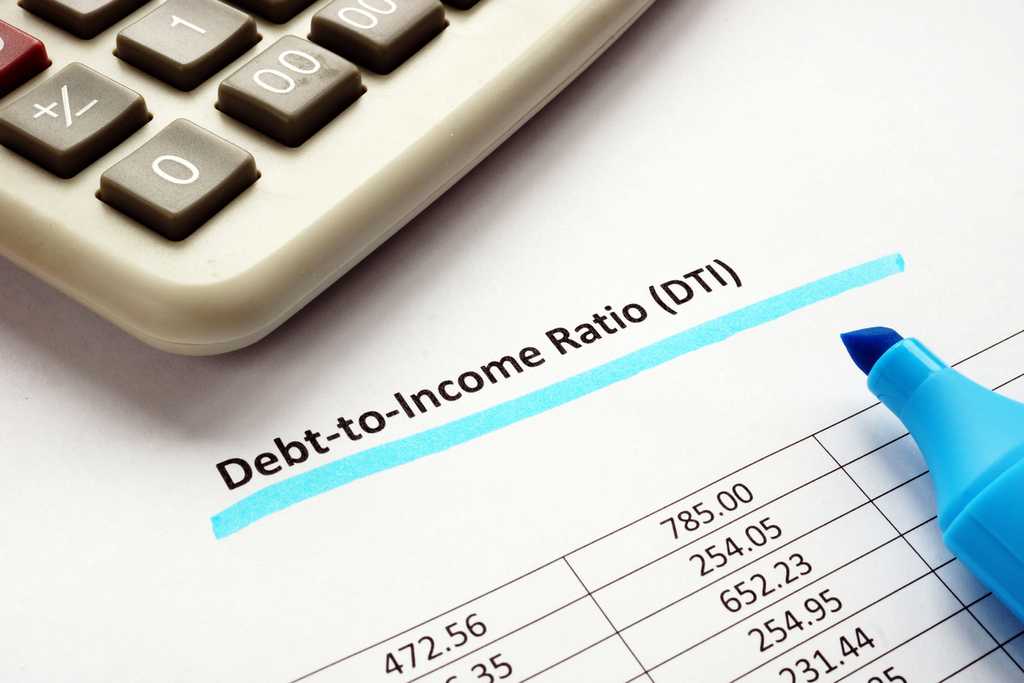Debt-to-income ratio (DTI) is a financial metric that compares the overall monthly debt payments an individual makes to their monthly gross income. Lenders use it as one factor in deciding whether a loan applicant should be granted a loan.
What is the debt-to-income ratio?
Debt-to-income ratio or DTI is one of the key financial ratios that lenders look at when reviewing an individual’s loan application. DTI is especially important when applying for a mortgage. DTI is expressed as a percentage of your monthly debt payments as compared to your monthly gross income.
Your DTI ratio tells a lender how much of your income goes to service your monthly debt obligations. A DTI that is too high may put your ability to cover an additional amount of debt in question in the lender’s eyes. This could prevent you from getting the loan or if the lender does grant the loan, the interest rate and other loan terms might be less favorable to you.
Lenders also use the DTI when assessing whether or not to give a small business loan. If you are a freelancer who has created an LLC and uses a small business banking account from a provider like Lili and you are looking for a small business loan to grow your business, potential lenders will want to see what other debts you have and how much income you generate.
What factors make up the DTI ratio?
The debt part of the DTI ratio includes you monthly debt obligations including items such as:
- Housing costs such as rent or mortgage payments
- Student loan payments
- Auto loan payments
- Credit card payments
- Payments on a personal loan
The minimum payments are compared to your monthly pre-tax income from employment, self-employment and other sources.
While DTI is not part of your credit score because the credit bureaus do not know how much you make, there is still some relationship. Credit bureaus will look at your credit utilization, the percentage of your available credit that you actually use. Someone who utilizes a high percentage of their available credit could conceivably also be a person whose level of monthly debt payments is high, impacting their DTI ratio.
How To Calculate Your Debt-To-Income Ratio
Debt-to-income ratio = the total of all monthly debt payments divided by gross monthly income.
In calculating your debt-to-income ratio, a prospective lender will add up all of your minimum monthly debt payments. They will look at what is listed on your loan application and verify these numbers against information from your credit report. They will then take this total and divide it by your monthly gross income.
The outcome is expressed as a percentage, for example if your monthly debt payments are $2,500 and your monthly gross income is $8,000 then your DTI ratio is 31.25%.
Expanding upon this example, let’s say an applicant had these monthly payments:
- Student loan debt $300
- Car payment $300
- Rent $1,500
- Personal loan payments $150
- Credit card minimum payments $250
Total $2,500
This amount would be divided by the applicant’s $8,000 monthly gross income to get the DTI ratio of 31.25% cited above.
In the case of a mortgage loan application, the lender will likely also calculate your DTI ratio with your mortgage payment from the loan figured in.
How to lower your debt-to-income ratio
The simplistic answer here is to either increase your monthly gross income or lower the amount of your monthly debt payments, or some combination of the two.
In the example above, if the applicant was able to raise their monthly gross income to $9,500, with no other changes their DTI would drop to 26.3% based on total monthly debt payments of $2,500 divided by their new monthly gross income of $9,500.
If this applicant was able to pay off their personal loan and eliminate the $150 in payments, this would bring their monthly debt payments to $2,350. Dividing $2,350 by their new monthly gross income of $9,500 would result in a DTI ratio of 24.7%.
Some strategies to increase your monthly gross income could include:
- Search for a higher paying job. This might be especially doable in the current environment as many companies are experiencing labor shortages. You might also be able to use this situation to your advantage in negotiating a higher salary with your current employer.
- Find a second job or work as a freelancer in your spare time to earn extra income.
- Go back to school to gain more skills or an added degree that could provide you with additional marketable skills that could lead to a higher paying position.
Some strategies to reduce your debt payments might include:
- Budgeting and tracking your spending more closely to enable you to devote extra money each month to help pay off debts faster.
- Budgeting can help you get a better handle on your spending to help you prevent adding additional debt payments via overspending each month.
- You may be able to refinance some of your debt to lower your monthly payments.
What constitutes a good debt-to-income (DTI) ratio?
Typically mortgage lenders want to see an overall DTI ratio of no higher than 36%, with no more than 28% going towards servicing the mortgage you are applying for. Fannie Mae, a government agency that guarantees some mortgages, indicates that they prefer a DTI of no more than 36% but will go a bit higher under some special circumstances.
Private lenders may not approve a mortgage if the DTI will be higher than these levels out of concern that the borrower may not be able to make timely payments on the loan. A poor DTI ratio may result in a higher interest rate for the mortgage than you were hoping for due to the added credit risk. Some lenders will go higher, but it is in your best interest to keep your DTI ratio as low as you can. If something happens that impacts your income, having a lot of other debt payments could impact your ability to make your mortgage payments, putting your home in jeopardy.
DTI is an important metric that a lender will count heavily in their loan review process. DTI doesn’t take other normal living expenses such as food, medical care and others into account. These are costs you will want to be sure are under control as even if you are approved for the loan, overspending here can cause you to have problems making the monthly payments.
It is a good idea to review your DTI ratio before applying for a loan. There are a number of online calculators that can help with the calculation. If your DTI is too high, it might behoove you to hold off on applying for the mortgage or other loan until you have a chance to try to lower your DTI.

